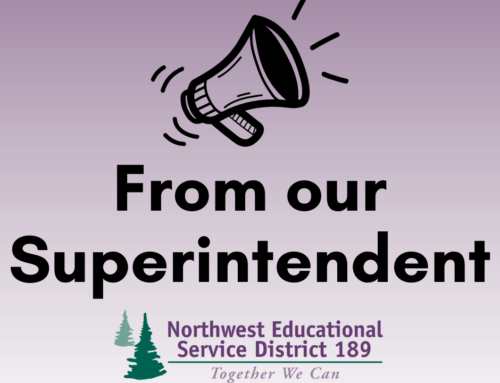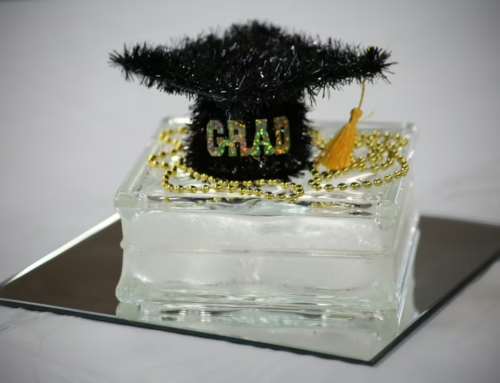My travels around the Northwest Educational Service District 189 (NWESD) region recently brought me to the Marysville School District Office where I had a chance to see teachers hard at work making materials and sharing ideas to help their young students develop understanding and excitement about math. Walking around with Lori Knudson, Executive Director of Learning and Teaching at Marysville, I was inspired to learn about the Foundations in Early Numeracy Project, a project that engages teachers, family engagement specialists, family members, and, of course, young children in early mathematics. Lori explained that the project was funded by Boeing and carried out in partnership with the NWESD, Zeno Math, and four Snohomish County School Districts.
As we stepped into the Boardroom, I immediately noticed the scent of permanent markers in the air. We saw preschool, kindergarten, and first-grade teachers unrolling what seemed to be yoga mats with squares drawn on them. The teachers were sitting in groups and enthusiastically generating ideas about how they could use these “life-sized ten frames” to help their students better understand numbers, operations, and algebra (YES, ALGEBRA!). One idea that emerged was to have the students stand in the boxes to represent items in word problems where they need to compose and decompose numbers up to ten. Another idea for students was to use plates with numbers on them to arrange and rearrange in the boxes for ordering, skip counting, graphing, etc. Altogether, teachers generated about 25 ideas for using this one item in their classrooms. Wow, I was impressed!
Lori had to run to another meeting, so she introduced me to Brynn Marcum, Marysville’s Director of Curriculum and Assessment, to gather more information. Brynn explained that, based on the Washington Kindergarten Inventory of Developing Skills (WaKIDS) scores, we have learned that children are entering kindergarten with stronger skills in physical, cognitive, and literacy development than in mathematics. The math activities I was observing were designed to help fill in the gap. Brynn explained that this math class was just one of four sessions that were developed for professional learning and collaboration and that teachers had already received several other math-oriented items for their classrooms. She shared that, during their final session, teachers would receive copies of some beloved books that are perfect for building a fondness and understanding for both math and literacy in young children.
We left the district office and headed a few blocks over to the Marysville Early Childhood Education and Assistance Program (ECEAP) Center where we met JoAnn Moffit, the welcoming and gregarious Director of the Center. JoAnn shared that, as part of this same project, the Center had hosted events over the last few months for educators to learn from culturally and linguistically diverse family members about their early math experiences and engagement with their children’s schools. Zeno has taken this learning and used it to retool training for family engagement specialists to learn about creating math parties that honor local parents’ knowledge, interests, and cultural and linguistic backgrounds.
Upon further research, I learned that the project will engage and provide resources for almost 100 teachers in four school districts (Marysville, Granite Falls, Sultan, and Monroe), 25 family engagement specialists, and as many as 300 families from around Snohomish County in early math exploration. I left Marysville energized by this strong example of effective partnerships focused on equity and excellence for all students and families. Go team!




